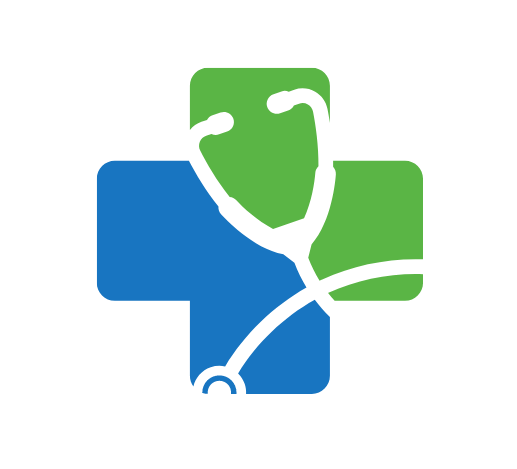
Many healthcare professionals assume that academic roles involve less pressure than clinical ones. However, academic settings bring their own kind of intensity. Instead of managing patient flow or coordinating surgical schedules, you’ll handle research deadlines, grant applications, and peer-reviewed publishing. While clinical roles offer structured days, academia introduces ambiguity and self-direction. In hospitals, priorities are often guided by emergencies. In universities, they’re driven by long-term outcomes. Recognizing this contrast early prevents frustration. You don’t stop being a clinician—you add the complexity of an educator and researcher.
Your clinical experience becomes a powerful asset when reframed through an academic lens
Academic institutions seek educators who bring real-world insights into the classroom. Clinical stories, case studies, and procedural experience make lectures more engaging and grounded. But storytelling alone isn’t enough. You’ll need to translate patient care into teaching objectives, simulation modules, and curriculum outcomes. For example, your knowledge of managing postoperative care becomes a framework for teaching decision-making under uncertainty. Students don’t just need facts—they need to understand the why behind each clinical step. That’s where your background becomes transformative.
Adapting to institutional culture is one of the most underestimated challenges
Shifting into an academic hospital or medical university means adapting to new bureaucracies. The protocols that once structured your clinical day may no longer apply. Instead, you’ll face faculty meetings, performance reviews, and interdepartmental politics. Many clinicians underestimate the time spent on committee work or curriculum design. It’s important to read institutional handbooks, talk to senior faculty, and observe internal dynamics. Academic progression—unlike clinical hierarchy—is often influenced by publications, networking, and mentorship roles. Understanding how the system rewards achievement is crucial.
Publishing and research skills take time to develop and cannot be rushed
Research is a cornerstone of academic life, yet many clinicians lack formal training in scientific writing. Transitioning requires learning the structure of academic papers, research ethics, and peer review navigation. Expect initial setbacks. Manuscripts may be rejected or require major revisions. Collaborating with experienced researchers can accelerate learning. Join journal clubs, attend writing workshops, and co-author with established academics. Don’t assume your clinical knowledge automatically translates into research credibility. In academia, impact is measured in citations, not in successful procedures.
Time management must evolve to reflect the unpredictable rhythm of academic work
Clinicians are used to packed schedules and predictable workflows. In contrast, academic calendars follow semester cycles, funding windows, and conference deadlines. This change in rhythm demands new time management skills. You may find that preparing a one-hour lecture takes ten hours of reading and structuring. Balancing teaching, research, and institutional duties is an ongoing challenge. Tools like semester planners and task-mapping software can help, but ultimately, discipline and adaptability are key. Long-term goals, like completing a research project, require small, sustained efforts.
Mentorship is not automatic in academia—you must actively seek and build it
In clinical settings, mentorship is often structured through residency or supervision chains. In academia, it’s informal and decentralized. Finding a mentor means identifying someone whose career path you respect and initiating conversations. Attend faculty development sessions, research symposia, or informal gatherings. Offer support on collaborative projects. A good mentor will not only guide your research but also help you navigate promotion criteria and departmental expectations. Without mentorship, it’s easy to feel isolated or directionless in your academic transition.
Curriculum development requires shifting from practitioner logic to pedagogical strategy
In clinics, decisions are outcome-focused: what helps the patient now. In academia, teaching is process-driven: how do students develop critical thinking? When designing curriculum, your clinical instincts must be balanced with educational methodology. Outcomes must be measurable, learning objectives must be clear, and assessments must align with what’s taught. Educational theory isn’t optional—it’s necessary. Explore models like Bloom’s Taxonomy or constructivist approaches. Institutions may require training in instructional design. Your real-world experience becomes valuable when you frame it around how learners construct knowledge.
Student engagement demands more than expertise—it requires vulnerability and openness
In clinical environments, authority is rarely questioned. In classrooms, students want context, empathy, and interactivity. Simply being knowledgeable isn’t enough. You’ll need to be transparent about the learning process, admit what you don’t know, and invite discussion. Students are more likely to connect with educators who model intellectual curiosity rather than perfection. Incorporate interactive elements—like role plays, small group tasks, or flipped classroom models. You’ll be surprised how much students teach you in return when you create a space for dialogue.
Your professional identity will evolve, but your clinical roots will remain essential
Becoming an academic doesn’t mean discarding your clinician identity. Instead, it becomes one part of a more layered professional self. Your days may now involve writing proposals, mentoring students, or chairing conferences—but your credibility often stems from your clinical background. Keeping one foot in practice, even through part-time shifts or consulting, can keep your perspective fresh. More importantly, it keeps your teaching relevant. Many top educators cite continued clinical engagement as a key to remaining grounded in academic environments.
Long-term fulfillment in academia comes from impact, not recognition
Academic transitions aren’t immediately rewarding. There are fewer thank-yous, no discharge summaries, and no immediate outcomes. Instead, your work echoes slowly—through published studies, inspired students, and institutional change. The rewards are subtle but powerful. Knowing that your course reshaped a student’s thinking, or your research informed national guidelines, offers a kind of satisfaction that outlasts daily clinical wins. For many, that deeper influence becomes the true meaning of success.

 then "Add to Home Screen"
then "Add to Home Screen"